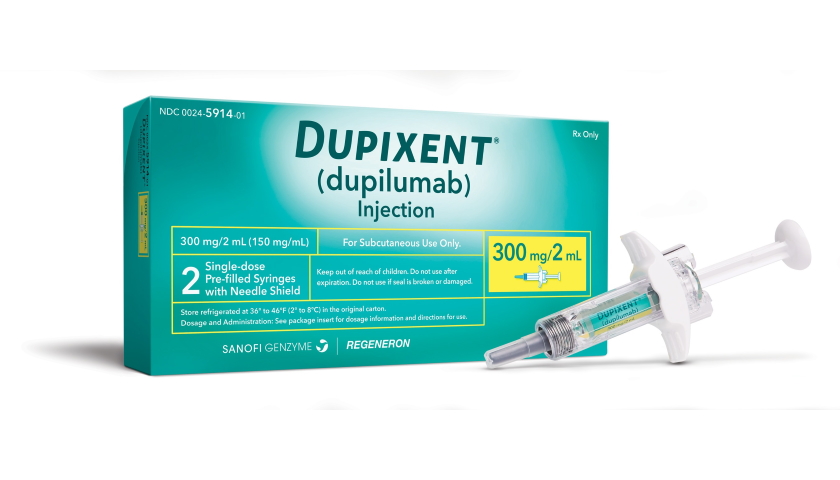Dupixent drives Sanofi to hike its full-year profit forecasts

Dupixent's march towards becoming one of the world's top-selling medicines continued at a healthy lick in the second quarter, allowing Sanofi to raise its full-year earnings forecasts.
Sales of Dupixent (dupilumab) rocketed 43% to €1.96 billion ($2 billion) – ahead of analyst expectations – driven by buoyant demand in its atopic dermatitis and severe asthma indications fuelled by approvals in earlier age groups.
Sanofi recently raised its full-year sales prediction for the product from €10 billion to €13 billion, thanks in part to uptake of the drug in eosinophilic oesophagitis, a new indication that was approved by the FDA in May.
That could propel the Regeneron-partnered drug into the top five biggest sellers, behind massive brands like AbbVie's immunology blockbuster Humira (adalimumab), Merck & Co's cancer immunotherapy Keytruda (pembrolizumab) and COVID-19 vaccines.
Dupixent's indications could be extended further if it is approved for the rare skin disease prurigo nodularis, currently under review at the FDA with a decision due in September.
The drug is also being tested in some forms of chronic obstructive pulmonary disease (COPD), and various conditions leading to urticaria (hives), although it fell short in a phase 3 trial in chronic spontaneous urticaria (CSU) earlier this year. Development in peanut allergy has also been discontinued, said Sanofi in its second-quarter update.
The performance of Dupixent and solid performances from its rare disease and consumer health divisions have allowed Sanofi to raise its forecasts (PDF) for earnings growth from low double-digits to 15%.
The rare disease franchise grew nearly 12% to €891 million, while consumer health was up 9.1% to €1.27 billion on the back of strong demand for cough and cold remedies due to COVID-19. Vaccine sales climbed 15% to €1.8 billion.
Looking ahead, the company highlighted Sobi-partnered efanesoctocog alfa factor replacement therapy for haemophilia A, which recently picked up a breakthrough designation from the FDA, but there was no mention of RNAi candidate fitusiran, which has been held back by cases of blood clots in clinical trials.













